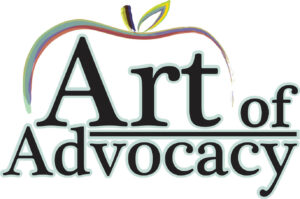Advocacy
An effective advocate:
- Is informed about issues, funding and policy
- Backs up their position with research and data
- Uses the statements of education, economic and government leaders to lend validity and visibility
- Makes their position personal and human with local examples and engagement
- Aligns with other advocates to present a unified voice position
2012 Arts Education Platform & Talking Points
2012 Florida Legislative Request for Arts Education: CLICK HERE
2012 Florida Legislative Platform for Arts & Culture: CLICK HERE
TALKING POINTS: 4 Reasons to Support Arts Education
1. Preparing Students for the 21st Century - The future success of America in the global economy will rely on its creativity and innovation. Arts education (music, visual art, theatre, dance) invites innovation by allowing students to work in a milieu where there are not “right answers” and self-direction is valued and facility and skill can only be developed through persistence.
…the difference between success and failure for the students who will grow up to be the workers of 21st Century America:*
- creativity and innovation
- facility with the use of ideas and abstractions
- self-discipline and organization
- ability to function well as a member of a team
* Tough Choices or Tough Times, The Report of the New Commission on the Skills of the American Workforce, www.skillscommission.org
2. Reduce Dropout Rates - Student engagement; a study* of the 2008 cohort of Florida 12th graders showed that students with more arts education did better by all measures of academic achievement (SAT, FCAT Reading, Writing, Math) compared to students with less arts education.
- For the general population, the more arts classes taken, the higher student achievement
- For students on “free and reduced lunch,” an indicator of socioeconomic levels, the more arts classes taken, the higher the student achievement
- For students divided by ethnicity, the more arts classes taken, the higher the student achievement
- The more arts classes taken, the less likely a student is to dropout of school
3. Educate the Whole Child - The arts touch our emotions and help to develop the humanity of our students. Educating our students to be whole people who are good neighbors, good parents, and good citizens. Through arts education students learn to:
- Make connections with others
- Understand our culture and the cultures of others
- Increases empathy, acceptance of diversity,
- Is a means by which we understand ourselves and others
4. Jobs in the Arts
- Graphic designers outnumber chemical engineers by four to one
- 30% increase in people earning a living as writers (since 1950)
- 50% increase in music composers or performers (since 1950)
- More Americans today work in arts, entertainment, and design than work as lawyers, accountants, and auditors
Communication Tools for Advocates
Advocacy Webinars
- Advocacy in Osceola County: Case Study by Joe Saunders
Click HERE - Advocacy Overview: Sherron Long, President Florida Cultural Alliance
Click HERE - Advocacy in Bay County: Case Study by Jennifer Jones
Click HERE

